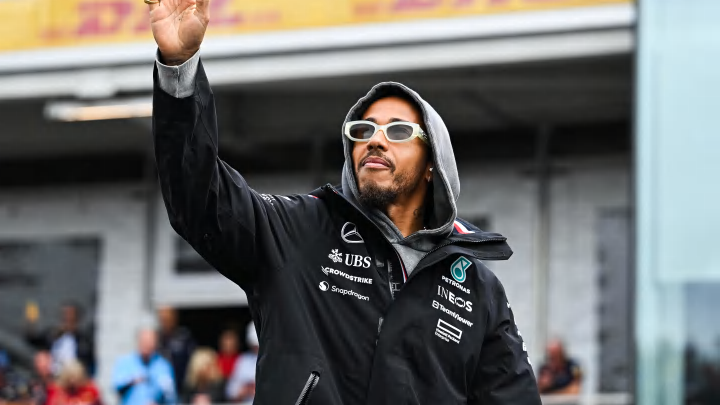Lewis Hamilton's Former Personal Trainer Lifts The Lid On Racing Driver Workouts

Racing drivers, often seen as athletes with a less strenuous physical regimen due to relying partly on their machinery for performance, actually undergo some of the most rigorous fitness routines in the world of sports.
This is especially true for Formula 1 drivers, who, as Angela Cullen, former personal trainer to seven-time F1 world champion Lewis Hamilton reveals, are subject to intense physical and mental demands.
Cullen, who now trains IndyCar driver Marcus Armstrong, shared valuable insights into high-intensity driver training in a recent interview on IndyCar's official YouTube channel, via Crash.net.
According to her, a driver's training regimen remains "pretty stable throughout the season," focused primarily on endurance and strength to handle the grueling demands of race days. Drivers typically manage two daily sessions that consist of cardiovascular exercises and weight training.
“I know he [Armstrong] does an hour cardiovascular and then he does a weight session. Some days he may do two weight sessions, generally doing four hours of training a day specifically for racing,” Cullen explained.
The Formula 1 summer break, often mistaken as a downtime, is in fact a period when drivers intensify their training.
"It’s kind of a reset, but that’s where they can get their big training sessions in because they’ve got time to recover," Cullen stated.
As race weekends approach, drivers scale back their physical exertion slightly, tapering their workouts to ensure full recovery and optimal performance.
“Coming into race weekends they taper off a little bit, they rest a bit more to make sure they are fully recovered so they’ve got the energy for the mental game as well as the physical game during a weekend. So it’s a really fine balance,” she noted.
Talking with Esquire, Hamilton commented on his training routines and how they've changed over his years of motorsport.
"You definitely adapt always, and you learn you have to just watch your energy. Recovery is huge, a really big part of the process. It’s the whole 360 thing. It’s not just going to the gym. It’s how much you stretch, how much physio you end up doing, what you eat.
"And that’s constantly changing week by week. And obviously, depending on how much energy you have, the different time zones that you’re in."
But winding down is just as important:
"I listen to a lot of music. I have music set up in my room. I record music. Basically, I write and sing music. Different sorts of R&B. So I record music at night. Often in my evenings, I read. Try to meditate, mostly in the mornings. But I don’t always get to it. And then I’m focused on my sleep.
"Try not to slack on that ever. So there’s a cutoff time when I want to go to bed depending on what time I need to be up the first day."
